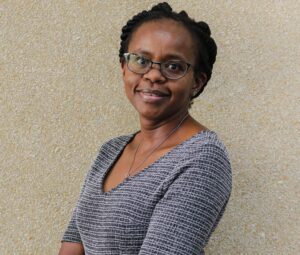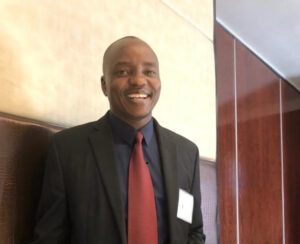For the #CARTA100 series, (celebrating CARTA’s over 100 PhD Graduates) Mpho Molete (Cohort Six Graduate, University of the Witwatersrand) shares about her current research interests, her experience of carrying out research and teaching amidst the pandemic. Read on.
Tell us about your current research interests: What questions/problems are you exploring? What are some of the findings that your work has revealed?
My current research interests are centered around the field of Implementation Science, as often in a health setting, we adopt programs or interventions because the evidence says it’s good and it works. However, not enough attention goes into ensuring that implementation is carried out well, in a given context and that the process yields favorable outcomes. These were some of the broader findings that emanated from my PhD research on school-based oral health programs. Therefore, I would like to continue working on questions that explore mechanisms of program implementation and approaches to bridging the gap between evidence and implementation; starting from the field of oral health to broader non-communicable disease interventions.
As a researcher, how did you overcome practical issues such as contact, communication, connectivity? What are the solutions relating to carrying out CPE during the Covid-19 pandemic?
When the COVID 19 pandemic emerged in South Africa, I was fortunate enough to have completed the data collection phase and was on the write-up stage, therefore I was not affected by the physical contact barriers. The greatest challenge for me during the early phases of lockdown was adapting to the routine of working from home. This was disruptive as I had to bear with unreliable connectivity, sharing of laptops, working space and juggling between assisting with homeschooling, work and PhD writing. Eventually, I settled in my “new normal” as I invested in good reliable Wi-Fi and found a corner in the house that was strictly designated for me. Therefore, my advice is; be intentional in creating a workspace that suits you and be open to adapting to technological advancements that are relevant to your research and teaching career.
What are the greatest lessons you have drawn as a researcher and are there any opportunities you have seen emerge from the pandemic?
The greatest lessons that I have learned during this pandemic are that; the field of public health is fundamentally important and the consequences of poor public health decisions can adversely impact global economies. Therefore, one need not have a myopic view of their field of interest and should be open to collaborating across disciplines as COVID has demonstrated the importance of interdependencies between politics, health, disaster management, economics and international relations. So, personally, the opportunities that I see are to be open to adapting my newly acquired PhD skills into addressing research questions that are not restricted to my field. Particularly in solving current health problems that we are faced with within the African continent and beyond.
What’s next for your career? What issues are you going to focus on in your upcoming research projects?
Following on my PhD findings, I am currently collaborating with the Gauteng Department of health in finding ways on how Community Health Workers can be trained and integrated into district oral health programs. I am also supervising student research that is assessing the effects of the school food environments on oral health. Some other work I have been mentoring include; the effects of COVID 19 on dental student learning and in addition the COVID 19 effects on professional dental clinical practice.




